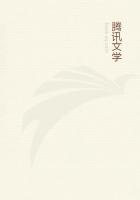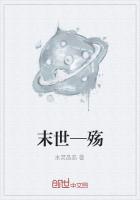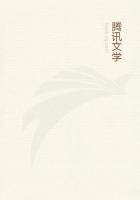He knew not in what new direction to turn, and sat at his desk, idly pulling threads out of the tangled skein of science, to see whether or why they aligned themselves. The commonest and oldest toy he knew was the child's magnet, with which he had played since babyhood, the most familiar of puzzles. He covered his desk with magnets, and mapped out their lines of force by compass. Then he read all the books he could find, and tried in vain to makes his lines of force agree with theirs. The books confounded him. He could not credit his own understanding. Here was literally the most concrete fact in nature, next to gravitation which it defied; a force which must have radiated lines of energy without stop, since time began, if not longer, and which might probably go on radiating after the sun should fall into the earth, since no one knew why -- or how -- or what it radiated -- or even whether it radiated at all. Perhaps the earliest known of all natural forces after the solar energies, it seemed to have suggested no idea to any one until some mariner bethought himself that it might serve for a pointer. Another thousand years passed when it taught some other intelligent man to use it as a pump, supply-pipe, sieve, or reservoir for collecting electricity, still without knowing how it worked or what it was. For a historian, the story of Faraday's experiments and the invention of the dynamo passed belief; it revealed a condition of human ignorance and helplessness before the commonest forces, such as his mind refused to credit. He could not conceive but that some one, somewhere, could tell him all about the magnet, if one could but find the book -- although he had been forced to admit the same helplessness in the face of gravitation, phosphorescence, and odors; and he could imagine no reason why society should treat radium as revolutionary in science when every infant, for ages past, had seen the magnet doing what radium did; for surely the kind of radiation mattered nothing compared with the energy that radiated and the matter supplied for radiation. He dared not venture into the complexities of chemistry, or microbes, so long as this child's toy offered complexities that befogged his mind beyond X-rays, and turned the atom into an endless variety of pumps endlessly pumping an endless variety of ethers. He wanted to ask Mme. Curie to invent a motor attachable to her salt of radium, and pump its forces through it, as Faraday did with a magnet. He figured the human mind itself as another radiating matter through which man had always pumped a subtler fluid.
In all this futility, it was not the magnet or the rays or the microbes that troubled him, or even his helplessness before the forces. To that he was used from childhood. The magnet in its new relation staggered his new education by its evidence of growing complexity, and multiplicity, and even contradiction, in life. He could not escape it; politics or science, the lesson was the same, and at every step it blocked his path whichever way he turned. He found it in politics; he ran against it in science; he struck it in everyday life, as though he were still Adam in the Garden of Eden between God who was unity, and Satan who was complexity, with no means of deciding which was truth. The problem was the same for McKinley as for Adam, and for the Senate as for Satan. Hay was going to wreck on it, like King and Adams.
All one's life, one had struggled for unity, and unity had always won.
The National Government and the national unity had overcome every resistance, and the Darwinian evolutionists were triumphant over all the curates; yet the greater the unity and the momentum, the worse became the complexity and the friction. One had in vain bowed one's neck to railways, banks, corporations, trusts, and even to the popular will as far as one could understand it -- or even further; the multiplicity of unity had steadily increased, was increasing, and threatened to increase beyond reason. He had surrendered all his favorite prejudices, and foresworn even the forms of criticism -- except for his pet amusement, the Senate, which was a tonic or stimulant necessary to healthy life; he had accepted uniformity and Pteraspis and ice age and tramways and telephones; and now -- just when he was ready to hang the crowning garland on the brow of a completed education -- science itself warned him to begin it again from the beginning.
Maundering among the magnets he bethought himself that once, a full generation earlier, he had begun active life by writing a confession of geological faith at the bidding of Sir Charles Lyell, and that it might be worth looking at if only to steady his vision. He read it again, and thought it better than he could do at sixty-three; but elderly minds always work loose. He saw his doubts grown larger, and became curious to know what had been said about them since 1870. The Geological Survey supplied stacks of volumes, and reading for steady months; while, the longer he read, the more he wondered, pondered, doubted what his delightful old friend Sir Charles Lyell would have said about it.
Truly the animal that is to be trained to unity must be caught young.
Unity is vision; it must have been part of the process of learning to see.
The older the mind, the older its complexities, and the further it looks, the more it sees, until even the stars resolve themselves into multiples; yet the child will always see but one. Adams asked whether geology since 1867 had drifted towards unity or multiplicity, and he felt that the drift would depend on the age of the man who drifted.
Seeking some impersonal point for measure, he turned to see what had happened to his oldest friend and cousin the ganoid fish, the Pteraspis of Ludlow and Wenlock, with whom he had sported when geological life was young; as though they had all remained together in time to act the Mask of Comus at Ludlow Castle, and repeat "how charming is divine philosophy!"

